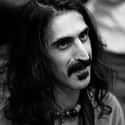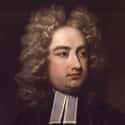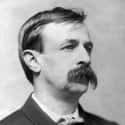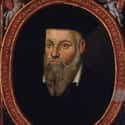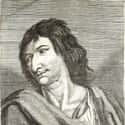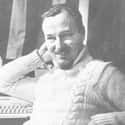-
(#9) Music Streaming Services
Frank Zappa is best known for his music, but he also predicted music file sharing and what would become music streaming back in the 1980s. In the chapter entitled "Failure" from his biography The Real Frank Zappa Book, he describes a proposition he pitched to label executives that included music "in a central processing location, and hav[ing it] accessible by phone or cable TV, directly patchable into the user's home taping appliances." This idea sounds a lot like file sharing, which would give birth to Napster and torrent sites a couple of decades later.
In the early 1980s, CDs were not the dominant format for consuming music yet. People were buying vinyl records that could warp in the heat or cassette tapes that could come apart and leave strands of the magnetic tape everywhere, jamming up the tape decks on stereo systems. Furthermore, recording songs directly from radio was a common practice that essentially led to a robust pirating black market for music.
Zappa's idea of direct access to music over phone or cable (mobile or broadband in present terms) was too ahead of its time for the execs to take seriously. Too bad for them, because the music industry's failure to quickly adopt a streaming service cost them billions of dollars and led to the industry's crash and the eventual folding of numerous record labels in the 2000s.
-
(#2) The Moons Of Mars
Jonathan Swift's classic Gulliver's Travels is a well-known story about miniature people and giants. But many don't know the author's work managed to predict that Mars has two moons 151 years before Asaph Hall discovered them.
The passage from the book that describes the two heavenly bodies - since named Phobos and Deimos - occurs when the titular character visits an island populated by insane scientists. Swift writes:
They have likewise discovered two lesser stars, or satellites, which revolve around Mars, whereof the innermost is distant from the center of the primary exactly three of his diameters, and the outermost five: the former revolves in the space of ten hours, and the latter in twenty-one and a half.
Sometimes, art really is a reflection of reality. Swift's prediction earned him the honor of having a crater named after him on the moon Deimos.
-
(#7) Credit Cards
Sci-fi author Edward Bellamy wrote Looking Backward in 1888, and he was able to predict a future in which cash wasn't the only type of money. The story's plot involves a man from 1887 who falls asleep and wakes up in the year 2000. He describes this world's form of currency:
A credit card [is] issued him with which he procures at the public storehouses, found in every community, whatever he desires whenever he desires it. This arrangement, you will see, totally obviates the necessity for business transactions of any sort between individuals and consumers...
An American credit card... is just as good in Europe as American gold used to be, and on precisely the same condition, namely, that it be exchanged into the currency of the country you are traveling in.
Bellamy's ability to predict how credit and international banking would work is impressive since credit cards wouldn't be introduced until the 1950s.
-
(#10) Great Fire of London
The most famous prognosticator of all time, Nostradamus, seemingly predicted the 1666 Great Fire of London with eerie accuracy. In his 1555 book Prophecies, the French soothsayer wrote a quatrain that many believe predicted the historic fire:
The blood of the just will commit a fault at London,
Burnt through lightning of twenty threes the six:
The ancient lady will fall from her high place,
Several of the same sect will be killed.The mayor of London at the time was Thomas Bloodworth. He had the chance to extinguish the blaze, but instead said “Pish! A woman might p*ss it out!”
The second line could be interpreted in two ways. "Burnt through lightning of twenty" could mean the sparks from the oven at the King's bakery on Pudding Lane, and "threes the six" might indicate the year 1666. "The six" may also refer to the six recorded casualties, although many more people likely died but were not counted. Taken another way, "twenty threes the six" could mean (20 x 3) + 6 = 66, also referring to the year.
The final clue is, "Several of the same sect will be killed." After the blaze subsided, many blamed Catholics for the fire, and deadly riots erupted.
-
(#8) Audiobooks
Savinien Cyrano de Bergerac was a French author during the Libertine period, and he managed to predict something akin to audiobooks in his early sci-fi work The Other World: The Comical History of the States and Empires of the World of the Moon in 1657. He describes a device very similar to what we now know as an audiobook:
It was a book to understand which the eyes are useless - one needs only to use his ears. When one wishes to read this book, he connected by a sort of little nerve to his ears. Then he turns a needle to the chapter that he wishes to hear, and immediately there emerges from the instrument, as from the mouth of a man or from the musical instrument, all the words and sounds which serve the Grands Lunaires for language.
While this could also be an early prediction of both earbuds and the phonograph, the fact that he describes it as a book that talks and uses both music and language makes it sound more like an audiobook played from a device.
-
(#1) Electric Cars
In 1969, author John Brunner published the sci-fi novel Stand on Zanzibar. In it, he describes the United States of America in the year 2010. One of the details in Brunner's story is that electric cars manufactured by Honda and others have become the preferred mode of transportation for most people.
In the real world, hybrid and electric cars were becoming a thing by 2010. Honda was producing cars with electric technology that year, though less successfully than their fellow Japanese competitor Toyota.
Electric cars are not the only thing predicted by Brunner. He envisioned a future involving rampant inflation, terrorist attacks on US soil, and Detroit techno. He also predicted a more open culture concerning sexual orientation. One of the more uncanny predictions made in Stand on Zanzibar is a President Obomi running the country. The spelling is so close to President Obama it's hard to ignore.
New Random Displays Display All By Ranking
About This Tool
Einstein once said, if an idea is not absurd at first, then it has no meaning. In the history of human invention, various strange and even useless ideas emerge endlessly. Although it is a waste of manpower and material resources, no one can deny that these ideas make the boring life more interesting, and even inspired the creative inspiration of some genius inventors, who finally produced more efficient new tools.
Hundreds of years ago, absolutely no one could have predicted that humans would be able to set foot on the moon. Perhaps many people laughed at these absurd ideas at that time, but now this dream has come true. With the generator, you could find random the weirdest ideas in history that somehow came true now, such as Electric Cars, Wi-Fi Technology, and more.
Our data comes from Ranker, If you want to participate in the ranking of items displayed on this page, please click here.







